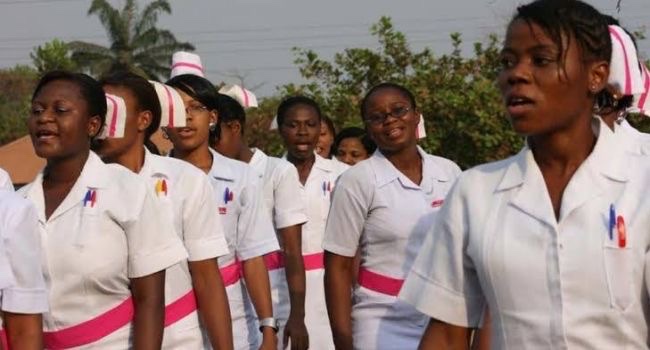Tensions are escalating within the National Association of Nigeria Nurses and Midwives as members brace for a showdown with the Nursing and Midwifery Council of Nigeria regarding new certificate verification guidelines.
Nurses and midwives across the country recently voiced grievances over the deactivation of the NMCN verification portal since December 2023.
In separate interviews with our correspondent, nurses alleged that the council’s action aimed to impede their ability to pursue career opportunities abroad, attributing it to the Federal Government’s agenda to curb health workers’ migration overseas for better prospects. The NMCN, designated by law as the sole regulatory body for nursing and midwifery standards in Nigeria, is responsible for ensuring the provision of safe and effective healthcare through education and best practices.
According to the NANNM, over 75,000 nurses and midwives have emigrated from Nigeria in the past five years, citing reasons such as inadequate wages, unsafe work environments, and rising insecurity, including targeted attacks on healthcare workers.
President Michael Nnachi highlighted the impact of this brain drain, stressing the strain on the healthcare workforce and its consequences for quality healthcare delivery.
In response, the NMCN issued revised guidelines on certificate verification, stipulating a minimum of two years’ post-qualification experience and active practicing licenses for applicants. Additionally, the council outlined a timeline for processing verification applications, effective March 1, 2024.
However, nurses have condemned these directives, viewing them as a violation of their rights and a hindrance to professional advancement. Plans for protests, including rallies and media engagements, have emerged across various states, with nurses mobilizing to challenge the council’s actions.
Voicing dissent, nursing associations and chapters nationwide have called for the withdrawal of the guidelines, denouncing them as detrimental to nurses’ welfare and professional autonomy. They emphasize the need for improved working conditions and remuneration to address the root causes of migration and ensure a robust healthcare system in Nigeria.


